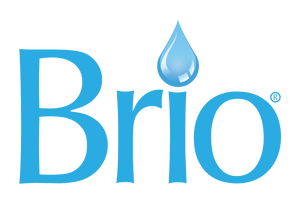Have you noticed that something isn’t quite right with your tap water? Maybe it has a metallic taste or smells like chlorine. It might appear cloudy, and in severe cases, you might experience health and skin issues.
If you have hard water problems, the signs range from subtle to extreme.
What might start as faded laundry and dry skin can escalate into more obvious signs, like clogged pipes and reduced water pressure due to mineral buildup.
Are you concerned about hard water? If so, you may need a water softener.
What Is Hard Water and Why Is It an Issue?
Hard water is water with high levels of minerals, primarily dissolved calcium and magnesium. Depending on your water source, it may also contain iron, manganese, or aluminum. These minerals are particularly common in groundwater, so if you source water from a private well, regular testing is especially important.
For example, when testing wells in Pennsylvania, Penn State found that 17% of those tested had excessive iron concentrations. If this is a potential issue for your household, you may have already noticed orange or brown stains in your sinks or stained laundry.
However, for the most part, calcium and magnesium are the biggest culprits in determining water hardness and result in many of the problems linked to hard water.
Signs You Need a Water Softener

Do your hands feel sticky after you wash them with soap and water? Maybe your dishes and glassware look cloudy?
These are just some of the telltale signs that you may need to address hard water by installing a water softener.
If you’re experiencing some or all of the following, it might be time to invest in a water softener.
• Scale buildup, also known as limescale, is a common problem when you have hard water. When water evaporates or is heated, minerals are left behind. You may notice a chalky white or yellowish residue on surfaces, appliances, or pipes.
• Corrosion can result from mineral buildup, as it accelerates the breakdown of metal fixtures and appliances. Over time, you may notice leaks, reduced water flow, and eventually, your plumbing may fail, which can be very costly.
• White or grayish stains, known as hard water spots, will be seen on glassware, shower doors, faucets, etc. You may also notice rust-colored stains in sinks and tubs.
• Dry skin and hair can result from exposure to hard water, as minerals strip the skin of its natural oils, leading to dryness and irritation.
• Stained or stiff-feeling laundry can be another sign, as the minerals left behind make your clothing feel rough and stiff. If your whites are turning yellow or gray, that’s another indication.
Getting Your Water Tested Is the First Step
If you have gone through the above list and relate to most or even all of the warning signs, you may have more than a good hunch that hard water is the problem. However, the only definitive way to determine your hard water rating is to get your water tested.
When you get a comprehensive drinking water test kit, you can check the hardness of your water, but also detect total chlorine, alkalinity, iron, pH, carbonate/bicarbonate, copper, nitrate, calcium, lead, coliform bacteria, and more.
This step is simple yet effective, helping you determine your home water quality so you can take the necessary next steps. At the very least, you’ll want to install a water softener. However, there are other options, including a whole house system.
Water Softener Benefits

When your goal is to reduce the problems associated with hard water, a water softener is a great way to safeguard your water quality, protect your appliances, and improve skin and hair health.
If you’ve noticed signs that you need a water softener, you can experience the following benefits once you install one, as it will actively reduce the mineral content in your water:
• Healthier skin and hair
• Longer appliance life
• Improved water heater efficiency
• Plumbing protection
• Cleaner laundry and dishes
Another Solution? Brio Whole House Systems

While there are many water softener benefits worth exploring, you can also invest in a whole house water filtration system. When designed to include water softening components, you can address hard water concerns throughout your house.
Since this solution is implemented throughout your home, you can protect pipes and appliances, leading to longer lifespans and reduced repair costs. You’ll benefit from better quality water for drinking, bathing, and cooking. You’ll also protect your clothing.
Take the Next Step with Brio

You don’t need to live with hard water. While not a pressing health concern, hard water can negatively affect skin and hair health, lead to soap scum buildup, and reduce the efficiency and lifespan of water-using appliances.
Take proactive steps by investing in a solution that fits your needs. Check out the following solutions to get started:
Have questions? We can help! Contact our team to discuss your options today.




